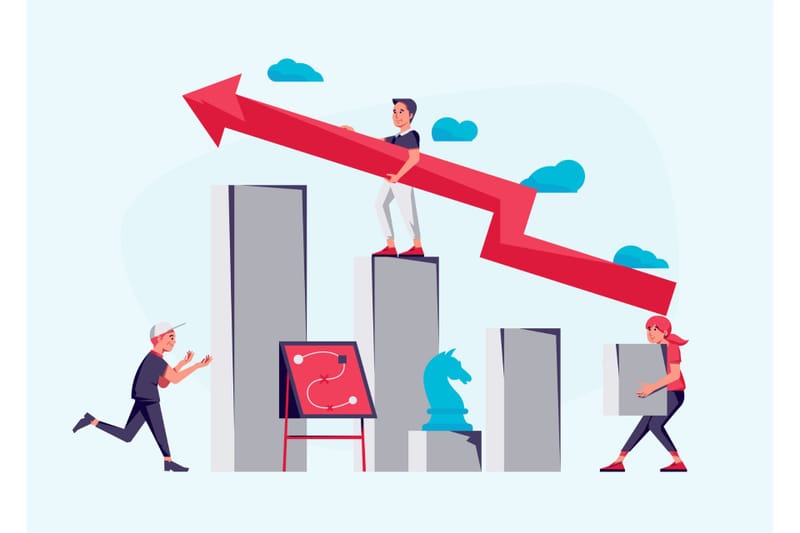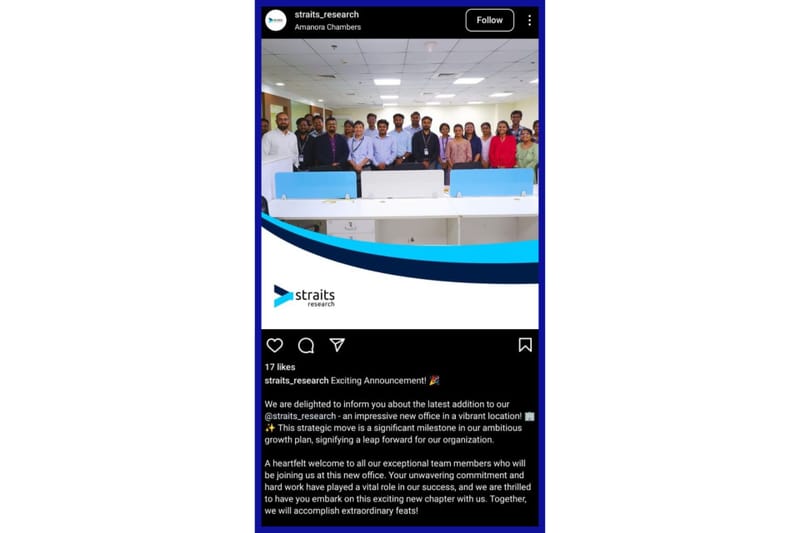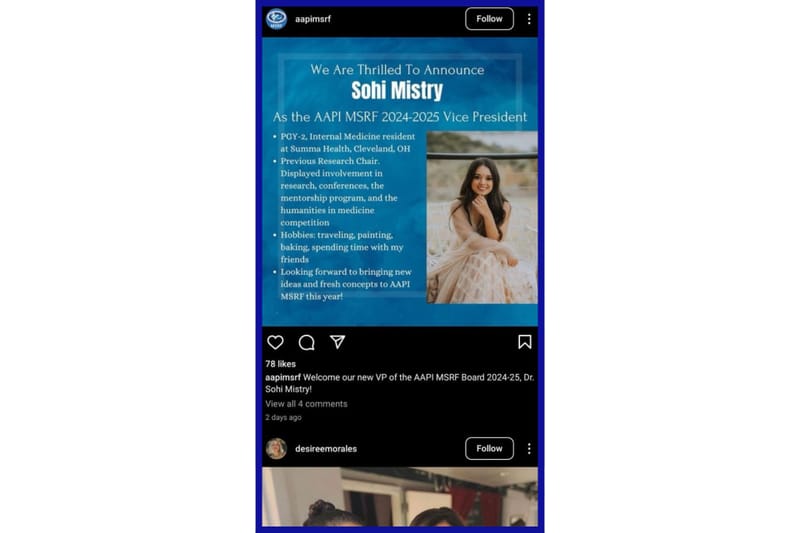What are Sales trigger Event and How to Close More deals in B2B sales

If you’re a sales rep or a sales professional in the B2B space, you’ve probably heard the buzz about sales trigger events.
But what exactly are they, and how can they be your golden ticket to closing deals?
Let’s dive into this exciting world, demystify these concepts, and, most importantly, show you how to leverage them to your advantage.
Buckle up, because we’re about to revolutionize your sales strategy.
Key Points Discussed
- Understanding Trigger Events: These events are specific occurrences indicating potential buying opportunities. Examples include company expansions, executive changes, funding announcements, mergers and acquisitions, product launches, and industry changes.
- Identifying and Acting on Trigger Events: To capitalize on these events, sales reps need to be vigilant and proactive. This involves setting up news alerts, monitoring social media, subscribing to industry publications, investing in sales intelligence tools, and networking.
- The Importance and Future of Events: Utilizing these trigger events is critical for staying competitive in the B2B sales landscape. Cold calling and generic emails are outdated, making personalized, informed ways to reach essential. Trigger events reflect a commitment to understanding prospects and serving them effectively.
What Are Sales Trigger Events?
In the simplest terms, it's an event is any occurrence that indicates a potential opportunity for your product or service.
These events signal that a prospect might be ready to buy, making them prime targets for your outreach efforts.
These trigger events include a wide range of activities or changes, such as:
- Company Expansion: When a company opens a new office or expands its operations.
- Executive Changes: When a company hires or promotes key executives.
- Funding Announcements: When a company receives new rounds of funding.
- Mergers and Acquisitions: When companies merge or acquire other businesses.
- Product Launches: When a company launches a new product or service.
- Industry Changes: New regulations or technological advancements impacting the industry.
Each of these events is a signal that something significant is happening in a prospect’s world. And where there’s change, there’s opportunity.
Why Do Trigger Events Matter
These events are the lifeblood of a smart B2B sales strategy.
Too many sales reps waste time cold calling or sending out generic emails, hoping something will stick.
Newsflash: This is 2024. The era of the one-size-fits-all approach is dead. If you’re not leveraging trigger events, you’re leaving money on the table. Period.
These events provide context and relevance, which are crucial in today’s buyer-centric world. They allow you to:
- Be Proactive, Not Reactive: Instead of waiting for prospects to come to you, you can reach out when the time is right.
- Your Pitch: A pitch customized to particular events in a prospect’s world is far more compelling than a generic one.
- Build Relationships: Showing that you’re aware of and care about a prospect’s current situation helps build trust and rapport.
- Close Deals Faster: Prospects are more likely to engage and move forward when your outreach is timely and relevant.
Identifying Trigger Events
Alright, so these trigger events are a game-changer. But how do you find them?
Here’s where the real work begins, and this is where many sales reps fall short.
It requires vigilance, research, and yes, some good old-fashioned hustle. Here’s how you can stay on top of these events:
- News Alerts: Set up Google Alerts for your top prospects and key terms related to trigger events.
- Social Media: Follow your prospects and their companies on LinkedIn, Twitter, and other social platforms. Keep an eye out for relevant updates.
- Industry Publications: Subscribe to industry-specific news sources and newsletters.
- Sales Tools: Invest in tools like LinkedIn Sales Navigator, Owler, or InsideView that can automate some of this work.
- Networking: Stay connected with industry insiders and attend relevant events where you might hear about potential trigger events.
Acting on Sales Trigger Events
Identifying these trigger events is only half the battle. The real magic happens in how you act on them.
Here’s a step-by-step guide to turning these events into closed deals:
- Research the Context: Understand the implications of the trigger event. If a company received funding, what are their likely next steps? Expansion? New hires? Product development?
- Craft a Message: Use the information you’ve gathered to create a personalized message. Reference the trigger event and explain how your product or service can help.
- Reach Out Promptly: Timing is crucial. The closer your outreach is to the trigger event, the more relevant and compelling it will be.
- Follow Up Strategically: If you don’t get a response right away, don’t give up. Follow up with additional value-add content or another angle on how you can help.
- Track and Adjust: Keep track of your results. Which types of trigger events lead to the most closed deals? Use this data to refine your strategy over time.
Examples of Leveraging Trigger Events
Let’s look at a few real-world examples to bring this strategy to life.
- Expanding Company: You notice that a mid-sized tech company just opened a new office in a different city. As a provider of office security systems, you reach out to the office manager, congratulating them on the expansion and suggesting a meeting to discuss their security needs for the new location. Your timing and relevance earn you a meeting, which leads to a deal.

- Changes at the executive level: A SaaS company just hired a new VP of Sales. You send a congratulatory LinkedIn message, mentioning how your sales enablement software has helped similar companies achieve faster onboarding and better sales results. The new VP is interested and has scheduled a demo with your team.

- Funding Announcements: A healthcare startup just secured Series B funding. Knowing that new funding often means new technology investments, you reach out to the CTO, offering insights on how your healthcare IT solutions can support their next growth phase. Your understanding of their situation and proactive approach resulted in a successful pitch.
Common Pitfalls and How to Avoid Them
Use these events to significantly boost your success, but there are some common pitfalls to watch out for:
- Being Too Aggressive: Don’t come on too strong. Acknowledge the trigger event and suggest a conversation, but don’t hard-sell right away.
- Ignoring the Context: Make sure you understand the broader context of the trigger event. Misinterpreting a trigger event can lead to awkward or irrelevant outreach.
- Over-Relying on Automation: While sales intelligence tools are great, don’t rely solely on them. Personal research and genuine human touch are irreplaceable.
- Neglecting Follow-Up: One touchpoint is rarely enough. Follow up thoughtfully, providing additional value each time.
My Opinions on Trigger Events
If you’re not using sales trigger events, you’re not truly selling.
In today’s B2B landscape, information is power, and timing is everything. These events are the key to unlocking both.
Cold calling is dead. Blanket emails are dead. The sales reps who thrive are those who leverage intelligence, stay informed, and personalize their approach.
These events are not just a tactic; they’re a mindset. They reflect a commitment to understanding your prospects deeply and serving them effectively.
In my view, the future of B2B sales belongs to those who master the art of timing and relevance.
These events are the most potent tool in this arsenal. So, get out there, start paying attention, and transform those trigger events into closed deals. Your pipeline will thank you.
A Final Thought
In the world of B2B sales, staying ahead of the curve is not just an advantage—it's a necessity.
Triggers offer a powerful way to maintain this edge. By identifying these events and acting on them with precision and care, you can significantly increase your chances of closing deals.
Triggers are your beacon, guiding you toward prospects who are not just ready to buy but are actively seeking solutions to new challenges or opportunities.
Sales success today is about being smart, informed, and proactive. Gone are the days of mindless cold calling and impersonal emails.
These outdated methods not only waste your time but also fail to resonate with today's informed buyers.
Instead, adopting a strategy that makes use of the triggers allows you to engage with prospects at the right moment with a message that truly speaks to their current situation.
Imagine reaching out to a company right after they've received new funding, offering solutions that align with their growth plans, or connecting with a new executive who is looking to make an immediate impact.
These are not just touchpoints; they are opportunities to demonstrate that you understand their needs and are ready to help them succeed.
Moreover, embracing triggers helps build stronger relationships with prospects. It shows that you are not just another vendor, but a partner who is attuned to their business dynamics and genuinely interested in their success.
This approach not only increases your chances of closing the deal but also fosters long-term loyalty and repeat business.
To truly utilize the triggers, continuous learning and adaptation are key. Stay updated with industry trends, utilize sales tools, and always be on the lookout for new triggers that can provide valuable insights.
The more informed you are, the more strategic your reach will be.
So, sales pros, it's time to revolutionize your approach. Embrace the trigger events, tailor your reach with precision, and watch your success soar.
The future of B2B sales is here, and it's all about being smarter, more connected, and more relevant than ever before. Your pipeline will thank you.

